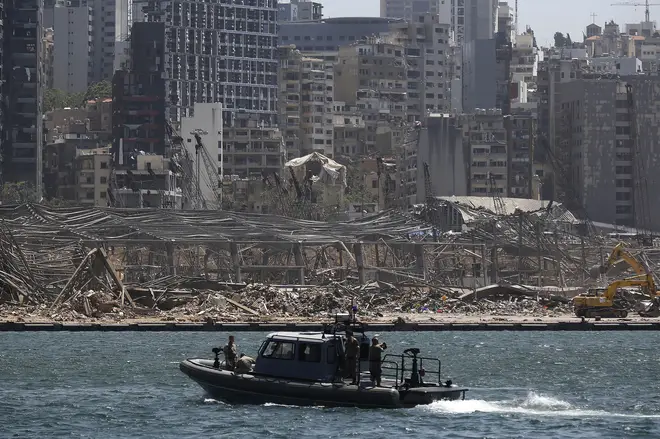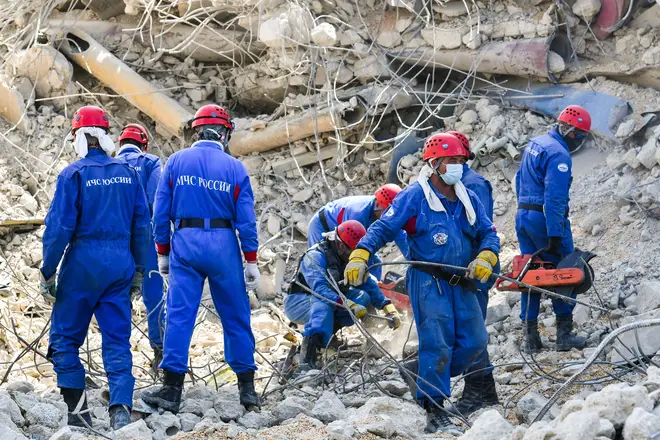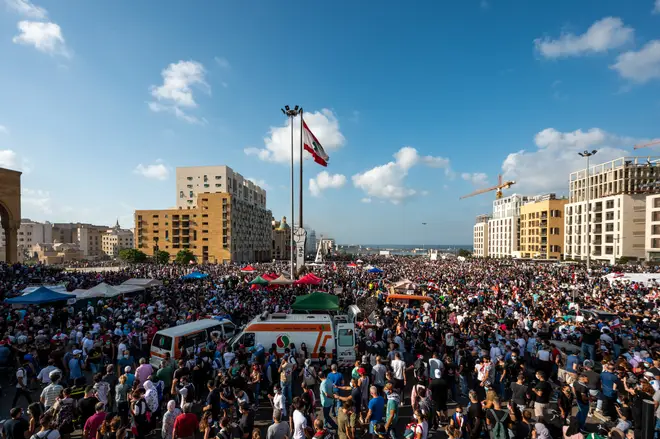
Ben Kentish 10pm - 1am
9 August 2020, 15:54

Britain has pledged a further £20 million in aid following the devastating explosion in Beirut.
The new support package will go directly to those injured and displaced by the explosion, providing access to food and medicine as well as other urgent supplies.
International Development Secretary Anne-Marie Trevelyan said the latest funds, in addition to £5 million aid already given, showed the UK would “stand by the Lebanese people”.
The blast in the city's port destroyed large parts of the surrounding area, killing more than 150 people, injuring more than 5,000 and leaving more than 300,000 homeless.
Addressing a virtual international aid summit attended by world leaders on Sunday, French President Emmanuel Macron warned Lebanon’s future was “at stake”.
READ MORE: Beirut police fire tear gas amid angry protests over blast


Prime Minister Boris Johnson told Lebanon’s president in a call the UK would “stand by the country in its hour of need”.
According to a No 10 spokesman, the Prime Minister also conveyed condolences from the Queen.
Meanwhile, protesters stormed government buildings in Beirut on Saturday night as security forces hurled tear gas amid seething anger at alleged corruption in the country hampering efforts to prevent the tragedy.
One police officer was killed and dozens of people hurt in the confrontations. Lebanon's information minister Manal Abdel-Samad has since resigned.
READ MORE: Beirut blast 'may have been caused by rocket or bomb', Lebanese president says
READ MORE: Shocking satellite images show devastation caused by Beirut blast


“Hell on Earth”: British survivor of Beirut blast tells story
In the immediate aftermath of the disaster, the UK offered £5m in emergency support, £3m of it for the British Red Cross. It is now proposing to give a further £20m to the World Food Programme, run by the United Nations.
The extra cash comes after a team of specialist UK medics arrived in the ravaged city on Friday to assess the health situation on the ground.
“The devastation we have seen in Lebanon this week has left people without homes, medical care and wondering how long it will be until the country's food supplies run out,” Ms Trevelyan said.

The aftermath of the Beirut explosion
Officials estimate the blast at a port-side warehouse, which stored more than 2,000 tonnes of ammonium nitrate, caused up to £11.5bn in damage.
One British aid worker told the PA news agency that the explosion had had a “devastating” impact on the city.
“The area of affected property is massive,” Rob Davis, from Search and Rescue Assistance in Disasters, said, adding the impact of the blast could be felt six miles away from the port.